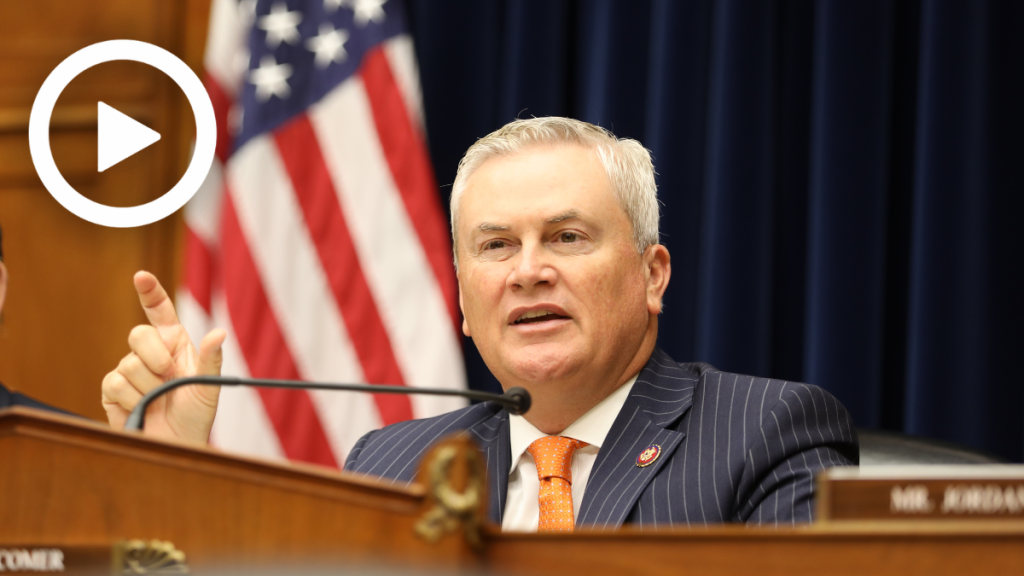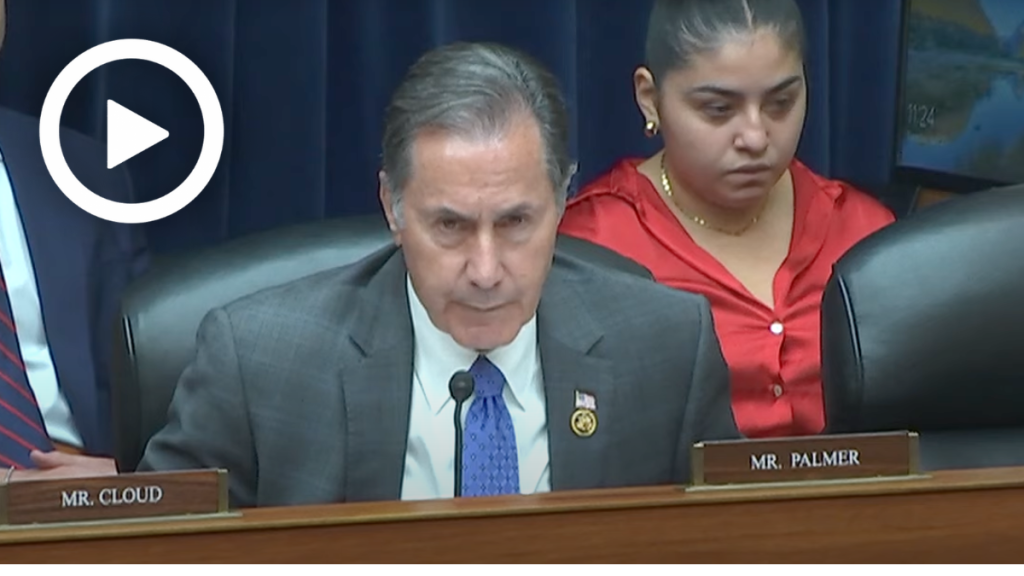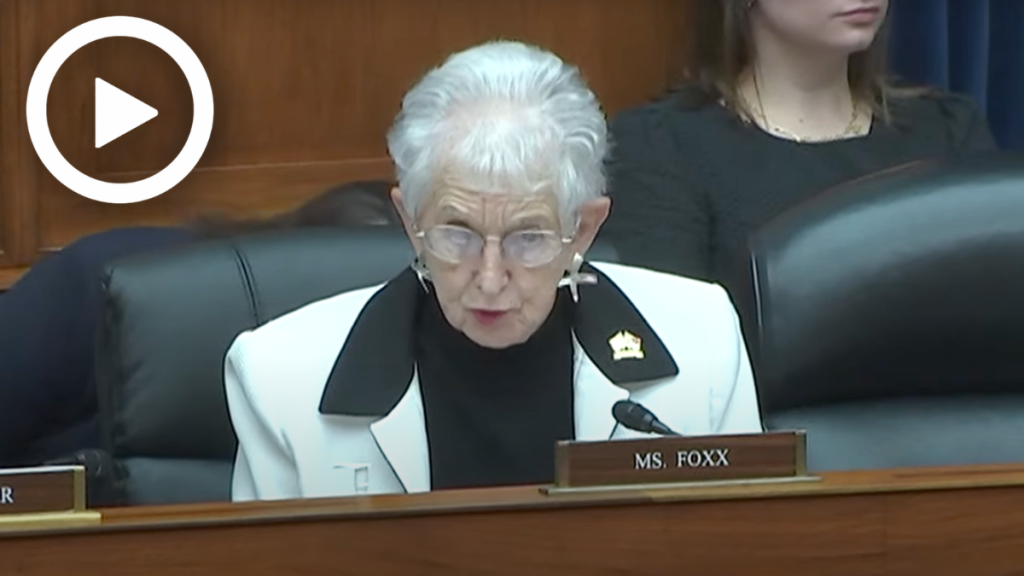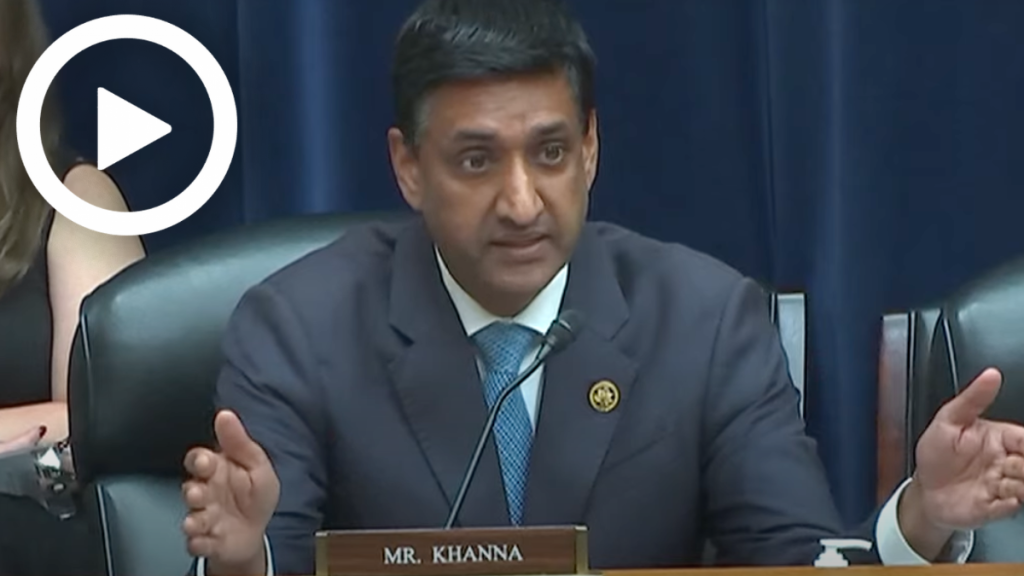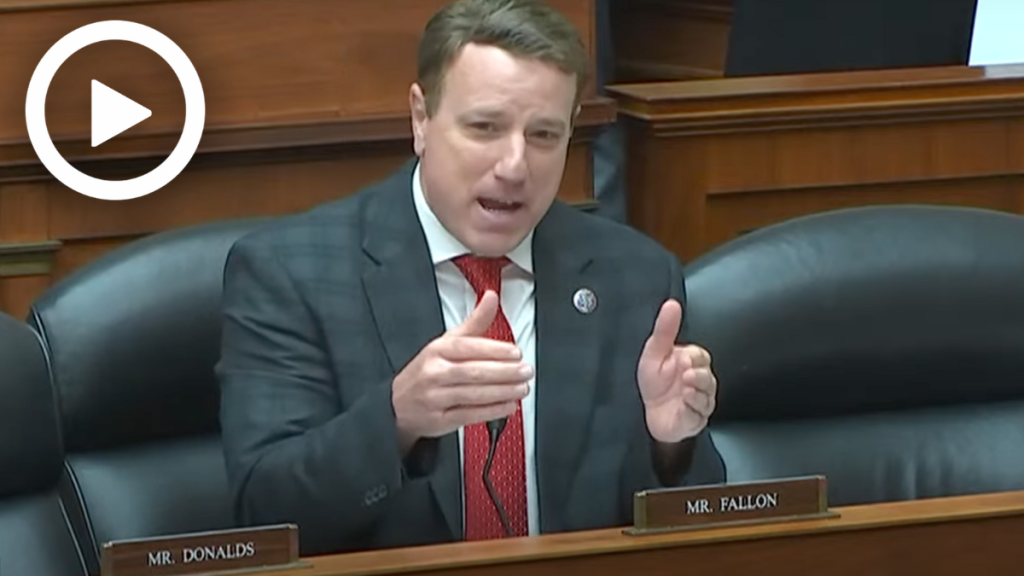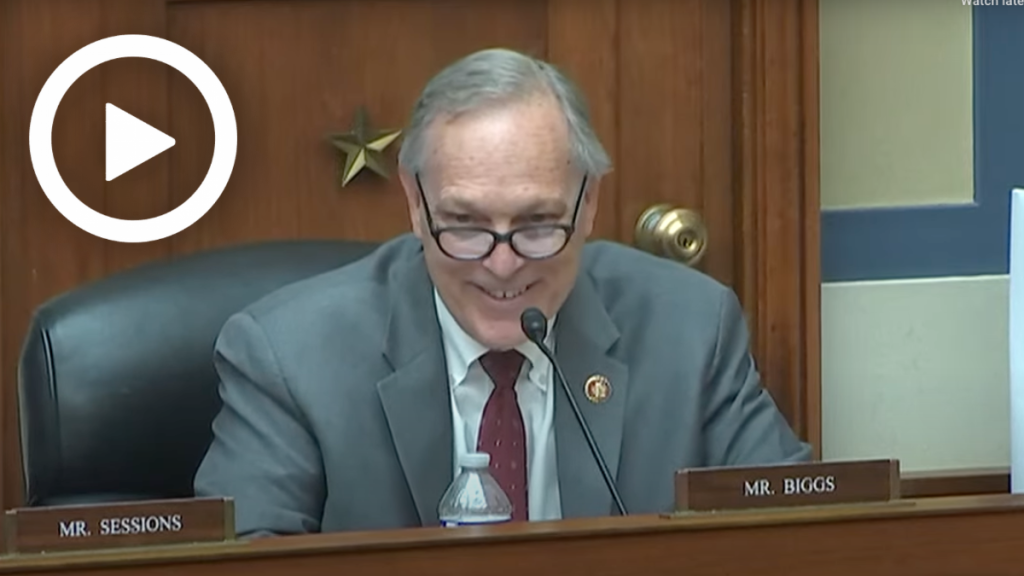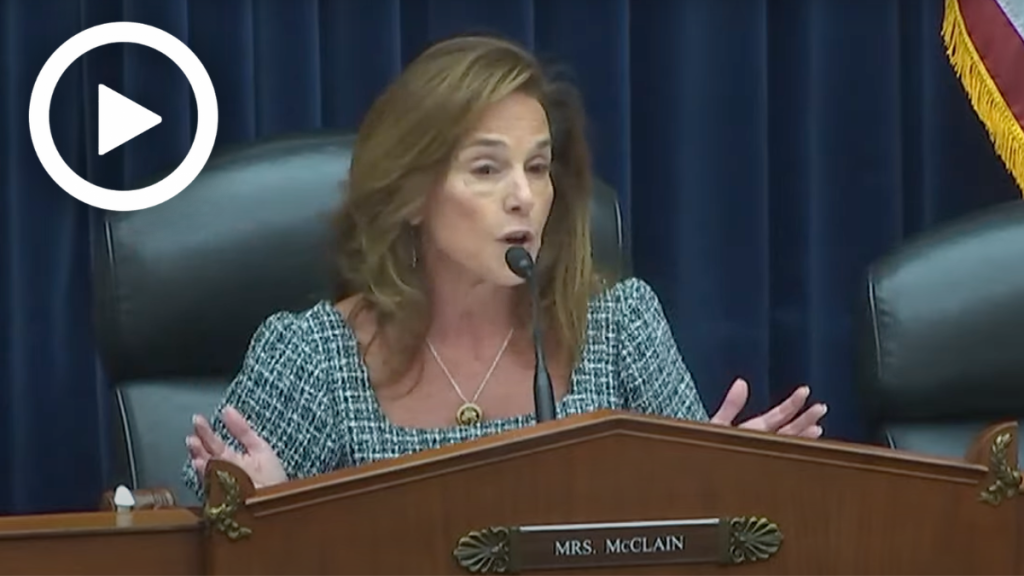Hearing Wrap Up: Oversight Committee Exposes How PBMs Undermine Patient Health and Increase Drug Costs
WASHINGTON—Today, the House Committee on Oversight and Accountability held a hearing titled “The Role of Pharmacy Benefit Managers in Prescription Drug Markets Part III: Transparency and Accountability.” At the hearing, Republicans and Democrats pressed Pharmacy Benefit Manager (PBM) chief executives on their role in rising prescription drug costs. Lawmakers exposed how PBMs have collaborated to monopolize the pharmaceutical marketplace and push deliberate, anticompetitive policies that undermine local pharmacies, raise the cost of lifesaving drugs, and harm patients across the country. Earlier today, Chairman James Comer (R-Ky.) issued a staff report on the Committee’s investigation of PBMs which details the self-benefiting pricing tactics used by the PBM industry. Lawmakers concluded Congress must continue working in a bipartisan fashion to address harmful PBM practices and advance legislative solutions to protect patients and reduce drug costs.
Key Takeaways:
The House Oversight Committee’s investigation reveals Pharmacy Benefit Managers play an oversized role in the pharmaceutical supply chain and push deliberate pricing tactics to line their own pockets.
- The Oversight Committee obtained over 140,000 documents and communications from the three largest PBMs that collectively control 80 percent of the health market: CVS Caremark, Express Scripts, and OptumRx.These documents form the basis of the committee’s conclusions in a new report titled, “The Role of Pharmacy Benefit Managers in Prescription Drug Markets,” showing how PBMs inflate prescription drug costs and interfere with patent care for their own financial benefit.
- Chairman James Comer: “Since 2021, the Committee has made it a priority to expose harmful PBM practices and advance legislative solutions to ensure greater transparency and accountability in the PBM industry. Instead of prioritizing the health of Americans across the country, evidence obtained by the House Oversight Committee shows how the three largest pharmacy benefit managers colluded to line their own pockets.”
Executives from CVS Caremark, Express Scripts, and OptumRx refused to provide clear answers to lawmakers.
- During the hearing, PBM executives refused to answer questions related to retroactive DIR fees that are crushing independent pharmacies, why there are 600 different prices set for a single drug across the country, and how PBMs steer patients to pharmacies they own.
Congress has a responsibility to act. The Oversight Committee will continue to work in a bipartisan fashion to advance legislative solutions that combat harmful PBM industry tactics and expose how PBMs undermine Americans’ health.
- Earlier this year, the Oversight Committee, passed H.R. 6283, the Delinking Revenue from Unfair Gouging (DRUG) Act, which creates certain requirements for PBMs that contract with a carrier offering health benefits plans offered under the Federal Employees Health Benefits (FEHB) program, including de-linking policies and prohibitions on spread pricing and patient steering.
Member Highlights:
Chairman Comer discussed how PBMs blame drug manufacturers for higher cost medications, despite reports demonstrating PBMs charge different prices across the country.
Chairman Comer: “Last week, the Southern District of New York … ordered CVS Caremark to pay over 20 million dollars in backed DIR fees, interest, and attorney fees. I understand that other oncology practices are in arbitration with CVS Caremark over the same issue, and you are attempting to prevent those from becoming public. Given the federal court findings, do you intend to pay all practices back for a clear miscalculation of DIR fees or do you intend to fight them all like you did the New York practice?”
Mr. Joyner. Executive Vice President, CVS Heath and President of CVS Caremark: “In specific response to these cases, we do actually comply with all Medicare Part D rules. Part of this is actually creating network adequacy and also making sure we’re managing the network according to terms and conditions. In this case, our goal is to apply these consistently across all 65,000 pharmacies and making sure we get the right drug to the right patient at the right cost.
Chairman Comer: “So are you going to fight the other rulings or are you just going to pay? Out of curiosity, have you decided yet?”
Mr. Joyner: “Consistent with what I had mentioned earlier, we do comply with the Medicare Part D rules and we’ll make sure that we’re consistent.”
Chairman Comer: “During the Committee’s investigation, we found evidence that each of your companies steer patients with long-term maintenance and other high-cost medications to the mail order pharmacies you own, even though it often results in more difficulty for a patient to get their medication. Will you commit today to stop steering patients to the pharmacies you own and instead let them choose the pharmacy that is best for them and pay the same price for the same prescription, regardless of where they pick up the prescription?”
Dr. Conway, Chief Executive Officer of OptumRx: “We do provide patient options, including home delivery, and we will continue to provide those options to patients.”
Dr. Kautzner, President of Express Scripts: “We focus on our clients – employers, labor unions, government entities, to make those decisions on their plan benefit designs. They make the decision on what types of pharmacists they want to provide.”
Chairman Comer: “During the Committee’s investigation, we found 300 examples of PBM’s placing higher cost medications in more preferred positions on formularies. A report that just came out found that not only are you prioritizing higher cost medications, you’re setting dramatically different prices for some medications across the country. […] Your companies have constantly claimed that drug companies set market prices, but if that’s the case, why are your companies charging different prices across the country?”
Dr. Conway: “As you said, manufacturers set the high list prices, but we are committed to providing the lowest net cost options to our clients so the drugs are more affordable to the people they serve.”
Chairman Comer: “So your testimony today is it’s not the PBMs, it’s the drug manufacturers? Because that’s not what our report has concluded, that’s not what we hear from doctors all across America. That’s not what we hear from pharmacists all across America.”
Rep. Gary Palmer (R-Ala.) examined how instead of PBMs working to reduce the cost of prescription drugs for Americans, the cost of prescription drugs has gone up every year for fifteen years.
Rep. Palmer: “The three largest PBMs control over eighty percent of the market and wield enormous influence over America’s access to prescription drugs and the prices that people who need those drugs have to pay. The PBMs task themselves as companies that are reducing the cost of medications for all Americans, yet the cost of prescription drugs and the spending on prescription medication have gone up every year for more than a decade. How can you convince the American people that you’re helping reduce the cost of prescription drugs when they’ve gone up so much?”
Dr. Kautzner: “For patients that we serve, in 2023, patients spent less out of pocket on average for thirty-day prescriptions than they did in 2022, despite brand manufacturers raising prices on sixty percent of those drugs.”
Rep. Palmer: “What we saw is that some name brand drugs were costing thirty-five times more at PBM-owned mail order pharmacies than independent pharmacies. I don’t understand where there would be that much of a disparity. How could it be that some of these drugs, and I’m not saying all of them, that PBM managed mail-order pharmacies would be thirty-five times higher. How do you explain that?”
Dr. Kautzner: “Congressman, I’d be happy to look at those individual examples and be able to get back to you on those pieces. What I can say is, on average, today, our employers make the decision on whether they want to have a home delivery pharmacy included in their network or not, so that is completely up to them.”
Rep. Virginia Foxx (R-N.C.) discussed price transparency and PBMs’ failure to pass on rebates to patients.
Rep. Foxx: “With an increase in consolidation, what incentives exist for PBMs to negotiate better rebates?”
Mr. Joyner: “The goal here in how I’m measured by my customers is my ability to lower costs for themselves and for the members they serve. That’s how I compete and that’s ultimately how they judge and value our performance.”
Dr. Kautzner: “Congresswoman, we operate in a highly competitive environment today. Every request for proposal that clients put out, you will see a half dozen or more PBMs that are competing aggressively for that business. We have to continue to extract value out of pharmaceutical manufacturers to show that value to patients.”
Dr. Conway: “We compete in a highly competitive market. We compete on clinical programs, transparency choice, and lowest net cost, and the OptumRx retention to customers is 98 plus percent.”
Dr. Foxx: “The Federal Trade Commission’s interim report on PBMs found that your three PBMs increasingly rely on group purchasing organizations, GPOs, which will receive roughly 7.6 billion in fees from drug manufacturers in 2022. […] Does your PBM pass on fees received from drug manufacturers and through GPOs back to plan sponsors in the form of rebates or otherwise. If so, what percentage of such fees do you pass on?”
Mr. Joyner: “Congresswoman, we pass over ninety-nine percent of rebates and administrative fees across our book of business and Medicare we pass 100 percent back to the government.”
Dr. Kautzner: “We do absolutely pass back rebates and fees to our clients. Many of our clients can receive 100 percent of those fees if that’s the type of benefit design they choose. We charge a simple per claim fee for that type of service.”
Dr. Conway: “Similarly, the majority of our clients have 100 percent pass through of rebates. There are clients, and on average, we’re 98 plus rebate pass through to clients as well and it’s their choice.”
Rep. Ro Khanna (D-Calif.) slammed PBMs for prioritizing costs over a doctor’s recommendation.
Rep. Khanna: “Can you commit that you will privilege the doctor’s recommendation over costs?”
Dr. Conway: “I have taken care of many children… it is critically important to follow the evidence.”
Rep. Khanna: “Why can’t you commit to following the doctor’s recommendation? This is the heart of why people are so upset with PBMs.”
Dr. Conway: “We value our partnerships…”
Rep. Khanna: “It is like lawyers are writing your statements. You are not committing to following a patient doctor’s recommendations.”
Rep. Pat Fallon (R-Texas) highlighted a Federal Trade Commission report revealing how PBMs undermine local pharmacies across the country and steer patients to pharmacies affiliated with PBMs.
Rep. Fallon: “There are pharmacies owned by the same PBMs they are linked to… There is a 71-page report here from the FTC that shows how PBMs use a number of tools to steer patients to affiliated pharmacies. Independent pharmacists are coming to our offices and saying they feel forced to use PBMs.”
Rep. Andy Biggs (R-Ariz.) expressed concerns over PBMs limiting options for service members and steering patients to preferred service providers.
Rep. Biggs: “I want to focus on active service members who are insured through TRICARE. It is my understanding that a recent contract renewal removed 15,000 pharmacies from the TRICARE network. I have serious concerns about how this situation looks. I don’t understand what the justification is for limiting options for service members… Do you steer service members to your preferred pharmacy?”
Dr. Kautzner: “We carry out the benefit as directed by TRICARE.”
Rep. Biggs: “You seem like a nice guy. I think you should be able to answer this question.”
Rep. Lisa McClain (R-Mich.) stressed that patients believe there is a problem with how PBMs operate and pressed the executives to provide data on how PBMs benefit the pharmaceutical marketplace and patient care.
Rep. McClain: “You seem to think there is not an issue. Show me the data. Just show me the data. The other side of this equation provides the data. It shows a problem. When I ask you for data, you just provide a nice PowerPoint. Do you have any data that actually shows PBMs benefit patients? Just show me the data… Can you get that to me Monday or in two years?”
Dr. Kautzner: “I would refer to my opening statement…”
Rep. McClain: “There lies your problem. I have been asking for data and you dive. You want zero transparency and we can see why.”
Rep. Buddy Carter (R-Ga.) detailed his personal experience with PBMs as a pharmacist and highlighted that he has seen patients being rejected critical medication. He emphasized that the three major PBMs limit options for patients and pharmacists seeking to help.
Rep. Carter: “Whether you are a Republican or Democrat, you want affordable and accessible quality healthcare. We all want that. This is why we are here. I want to bring it to a personal note and as you know I am a pharmacist. Patients come to me… We are talking about real people here. For 40 years, I was the one who watched senior citizens make a decision about purchasing medication or groceries. I was the one that saw patients debate on how they would afford antibiotics. Do you all steer patients to your own pharmacies? Are you familiar with the evidence the FTC has that shows you steer patients? You are not talking to someone right now that doesn’t know what is going on. I signed these contracts. I know how we are limited. There is only one word I know how to describe this and that is despicable.”
READ MORE:
WSJ: Drug Middlemen Push Patients to Pricier Medicines, House Probe Finds
Legal Disclaimer:
EIN Presswire provides this news content "as is" without warranty of any kind. We do not accept any responsibility or liability for the accuracy, content, images, videos, licenses, completeness, legality, or reliability of the information contained in this article. If you have any complaints or copyright issues related to this article, kindly contact the author above.

